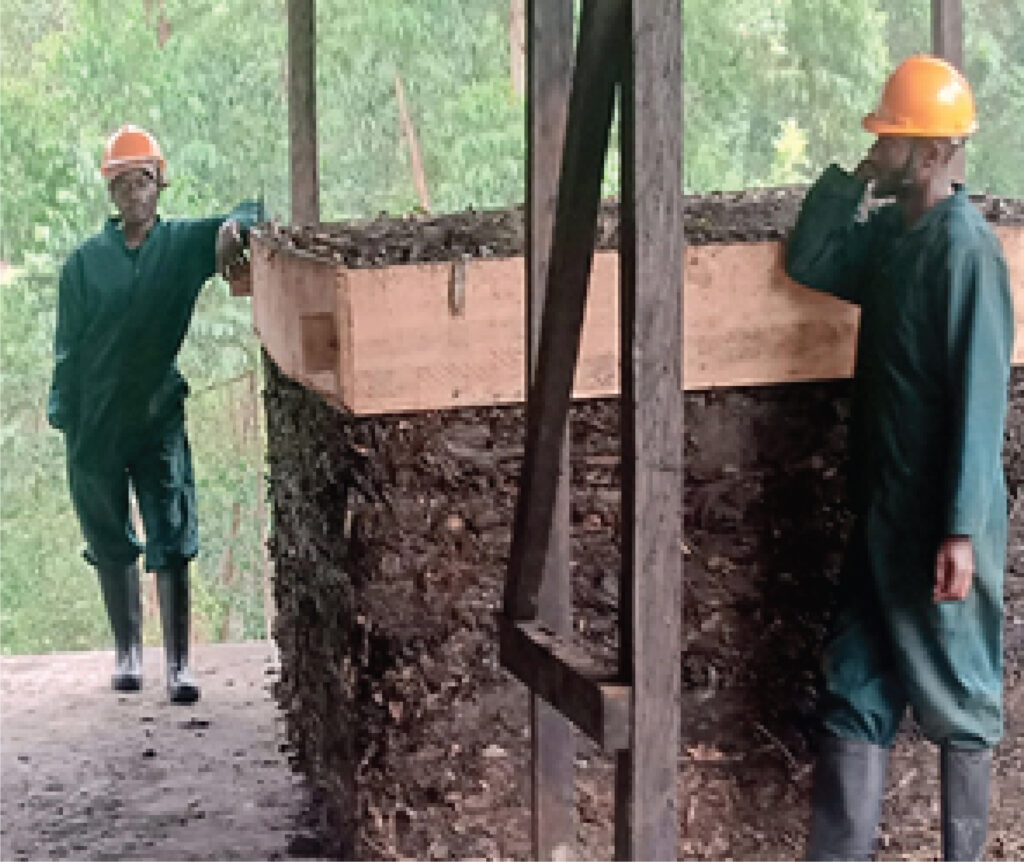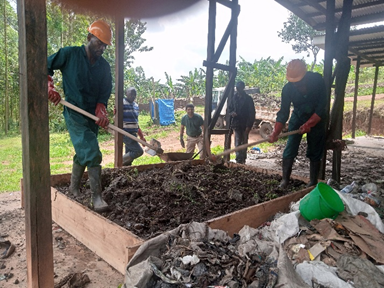

BACKGROUND
Since 2019, Caritas Fort Portal-HEWASA has been implementing feacal sludge management circular economy activities, which falls under its FINISH Mondial programme. FINISH (Financial Inclusion Improves Sanitation and Health) Mondial (Global) activities, supported/funded by WASTE Netherlands; have been implemented in the Rwenzori region for over….years, focusing on safely managed sanitation facilities at both household and institutional levels. However,

